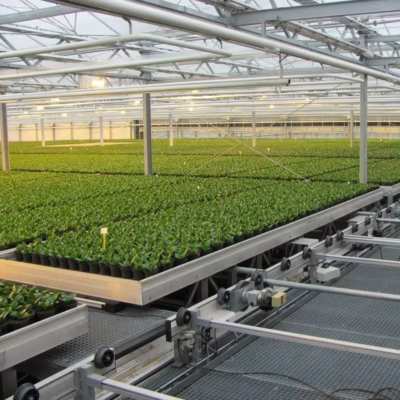Holidays are supposed to be the calm eye in the year’s storm, yet every December plumbers in Bath field a flood of panicked phone calls. Industry surveys show call-out volumes across the UK jump by anything from 30 % in a typical year to 50 % in harsh winters, and West Country engineers confirm the city follows – and sometimes beats – that curve. Below, we unpack the cocktail of social habits, weather patterns and infrastructure quirks that turn Bath’s cheery festivities into a perfect storm for blocked drains, burst pipes and boiler failures – and we offer practical steps to keep the party on track.
1. Full houses put unseen pipework under full pressure
A Georgian terrace may cope fine with a couple’s everyday routine, but triple the number of showers, dish-washer cycles and loo flushes when families descend and the strain on branch lines rockets. Add linen-washing between gatherings and the system spends whole days at peak flow with no recovery window. The first casualty is often the least forgiving fixture: the upstairs WC, where a slow siphon fault suddenly becomes a gushing overflow once guests arrive.
2. Festive cooking clogs kitchen drains
Water UK’s annual “Bin It, Don’t Drain It” campaign is timed for December with good reason. When roast-dinner trays are rinsed under hot taps, liquefied fat scuttles down waste pipes but cools within minutes, solidifying into a grey plug further along the stack. Combine that grease with vegetable peelings ground through disposals and stringy turkey skin that relatives insist on hand-washing, and Bath’s Victorian clay sewers can clog in a single weekend.
3. Sudden cold snaps test exposed pipework
While Bath benefits from the Bristol Channel’s maritime influence, overnight temperatures frequently dip below freezing in the surrounding hills. Condensing boilers discharge acidic water through narrow polypropylene condensate lines; if those external runs are uninsulated, they freeze, back-filling the boiler and tripping the lock-out sensor. Garden taps that were never isolated can also burst just inside the wall, flooding kitchens and basements at 3 a.m. on Boxing Day when no merchant is open for spare parts.
4. Ageing heritage fabric magnifies every leak
Tourists love the city’s honey-coloured stones, but Bath’s listed housing brings quirks: slim cast-iron stacks, lead traps and hand-beaten copper pipes tucked behind lath-and-plaster walls. In many flats those systems have been “upgraded” by successive owners, leaving a patchwork of fittings that seldom meet modern BS EN standards. When holiday traffic spikes, weak compression joints give way and water finds paths through century-old timber joists before anyone notices the damp stain on the living-room cornice.
5. Holiday closures create a supply-chain bottleneck
Merchants shut early on Christmas Eve, manufacturers close distribution hubs, and parcel networks focus on retail returns. Even if a plumber diagnoses a failed diverter valve in minutes, sourcing the exact spare for a ten-year-old combi might take days. Homeowners therefore seek help urgently – not because the repair is complex, but because every hour before the break increases the odds of spending Christmas in a cold home. Early calls crowd local schedules and drive the visible spike in statistics.
6. DIY enthusiasm and a dash of mulled wine
Gifted toolkits tempt many hosts to “quickly” fix the dripping tap before relatives arrive. Unfortunately, overtightening an old fibre washer can crack a tap body, and forcing a lime-scaled isolation valve can snap its stem clean off. Alcohol-fuelled confidence hardly helps. Reddit threads from on-call engineers swap war stories of improvised repairs involving clingfilm and cable ties discovered after midnight on Christmas Day.
7. Real-world numbers: a 50 % jump is common
Press releases from plumbing chains report that national call volumes between 24 December and 2 January regularly surge by half compared with an average fortnight, with blockages accounting for roughly two-thirds of incidents and burst pipes another 15 %. Local Bath companies echo those figures in trade interviews, noting that many of the city’s student lettings stand empty over the holidays, so leaks often run unchecked for days before neighbours raise the alarm, amplifying water damage.
8. Hidden costs and environmental damage
A blocked foul line is not just a domestic inconvenience. The pressure can force wastewater out through inspection lids, seeping into Bath’s limestone cellars and ultimately the Avon, compounding the region’s ongoing struggle with combined-sewer overflows. Ofwat’s performance reports show pollution incidents in England rising year-on-year; holiday blockages are a measurable contributor.ofwat.gov.uk Home insurance does cover “escape of water”, but adjusters increasingly query evidence of routine maintenance when claims coincide with turkey sandwiches and spent party crackers.
9. Pre-holiday checklist for homeowners
-
Book a pre-winter service – A November boiler check allows engineers to flush sludge and replace failing seals before parts depots wind down.
-
Lag external pipework – Condensate and outdoor taps need foam insulation and, ideally, trace-heating cables.
-
Fit a waste-pipe guard – Simple basket strainers catch fat and peelings before they reach the U-bend.
-
Locate the stop-cock – Label it and test that it turns freely; penetrating oil needs 24 hours to penetrate seized brass.
-
Stagger showers – Encourage guests to leave fifteen minutes between turns so hot water can replenish and drains can clear.
Completing the list costs little compared with an after-hours call-out.
10. Action plan when the worst happens
-
Isolate the problem – Kill the water at the internal stop-cock or, for heating leaks, close both ends of the filling loop.
-
Shut off electrics – Flip the consumer-unit breaker for any circuit showing moisture near sockets or fixtures.
-
Contain and document – Towels and buckets minimise damage; photos taken before and after containment strengthen insurance claims.
-
Ventilate carefully – In a boiler fault, open a nearby window but avoid turning on extract fans that might draw flue gases indoors.
-
Call a professional promptly – Local engineers’ diaries fill fast after the Queen’s Speech, so early contact shortens downtime.
For many residents, that means a single trusted emergency plumber bath number saved in the phone.
11. What professionals bring to a holiday emergency
Licensed engineers arrive with flue-gas analysers, wet vacuums, insulation sleeves and a van of universal spares. They test gas tightness, pressure-test suspect branches and often restore at least partial service in a single visit by capping damaged zones or installing temporary pumps. Crucially, they carry indemnity insurance and produce Gas Safe certification – documentation insurers now demand before settling claims arising from escape-of-water events.
12. Looking ahead: smarter systems, calmer holidays
Smart leak detectors that text homeowners, Wi-Fi-linked boiler pressure sensors and automatic shut-off valves are dropping in price. Early adopters in Bath are coupling these gadgets with annual maintenance contracts that guarantee same-day attendance even on bank holidays. Over time, such proactive solutions should flatten the seasonal spike, keeping both engineers and residents free to enjoy mince pies instead of mopping floors.


